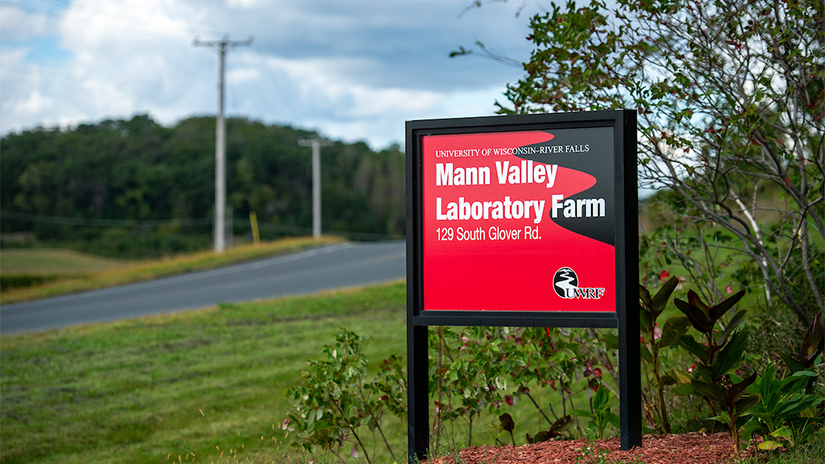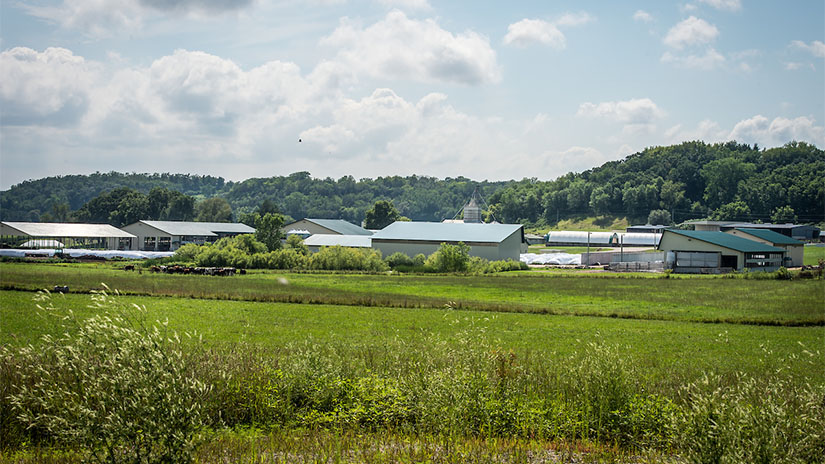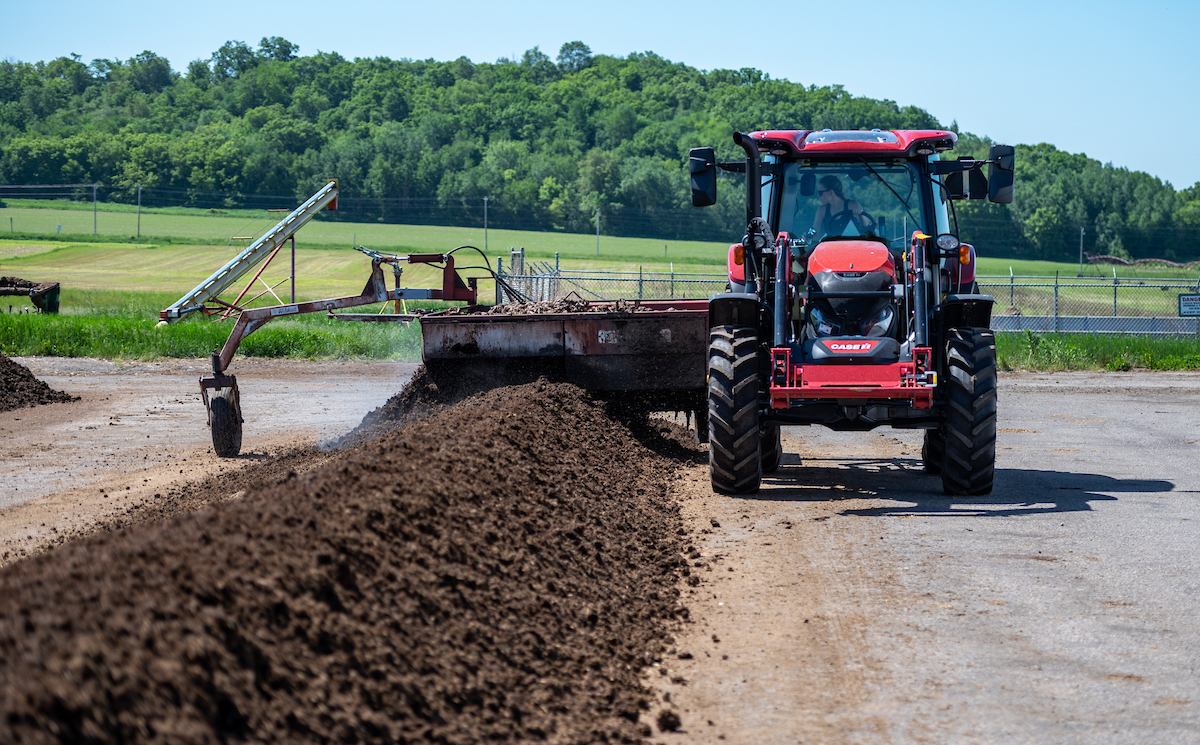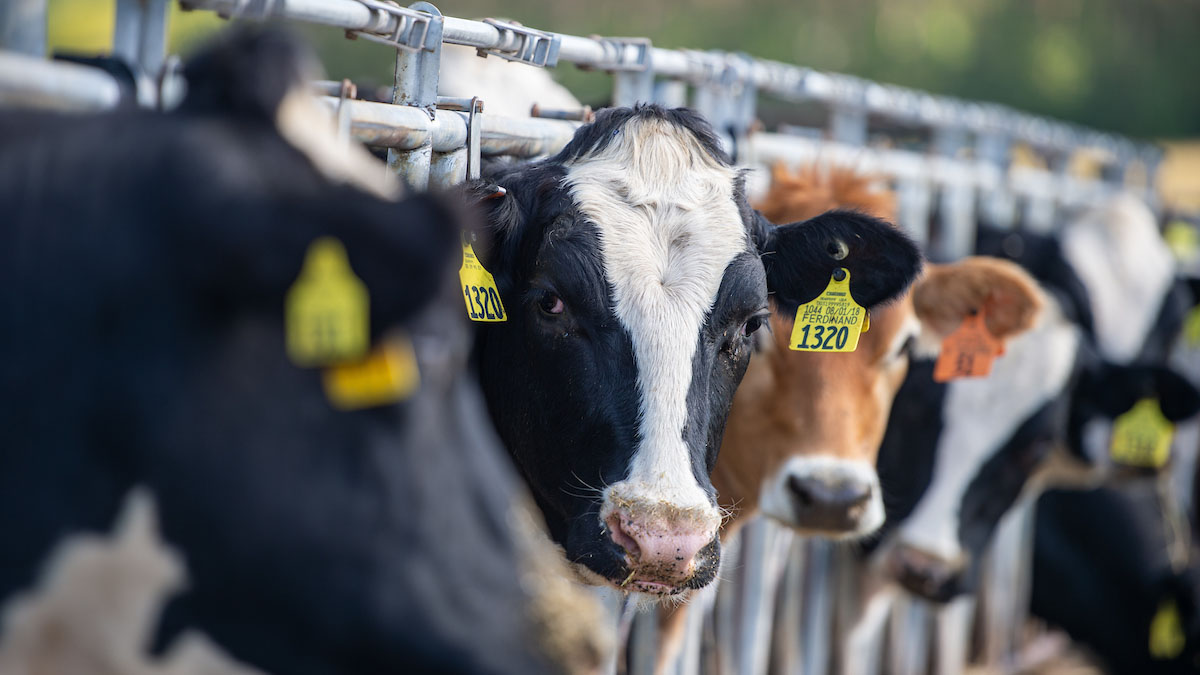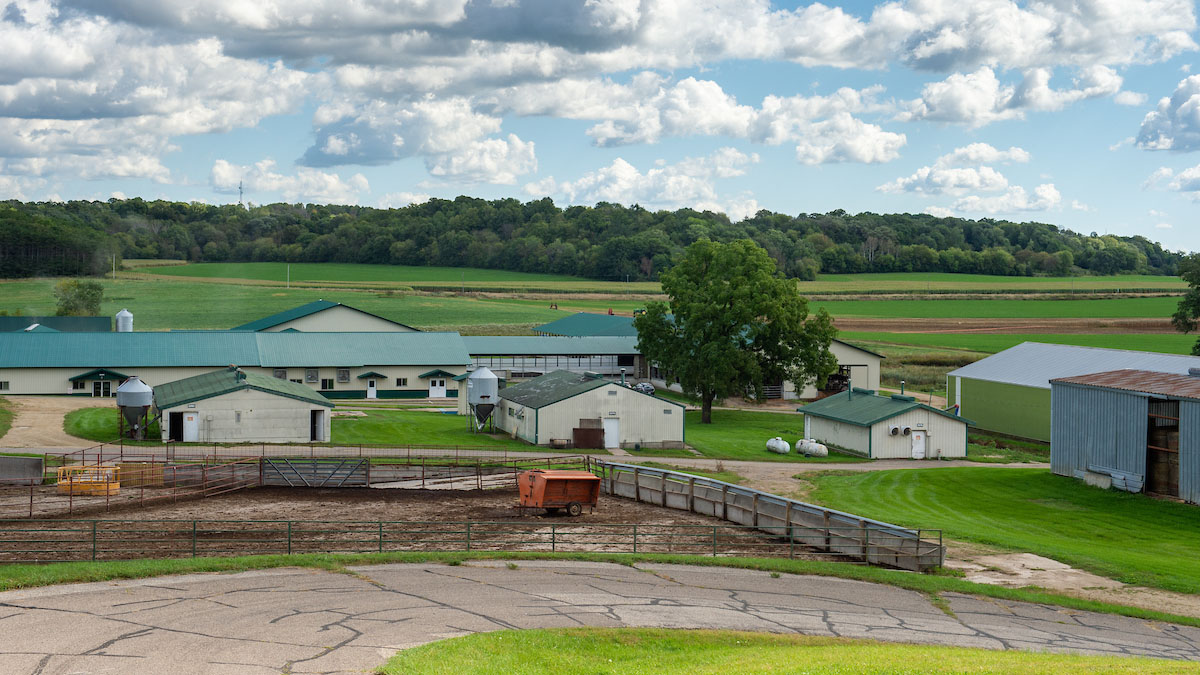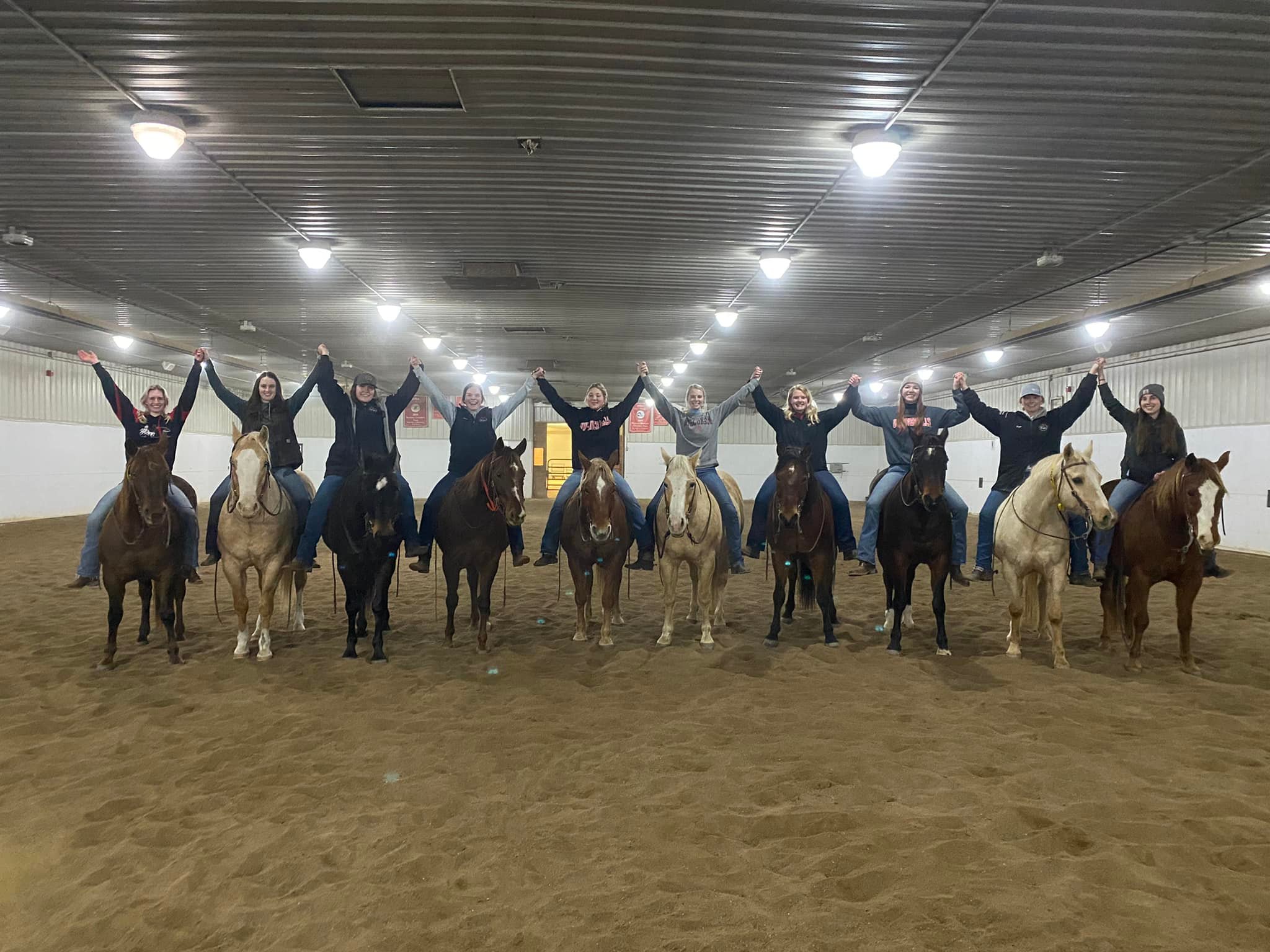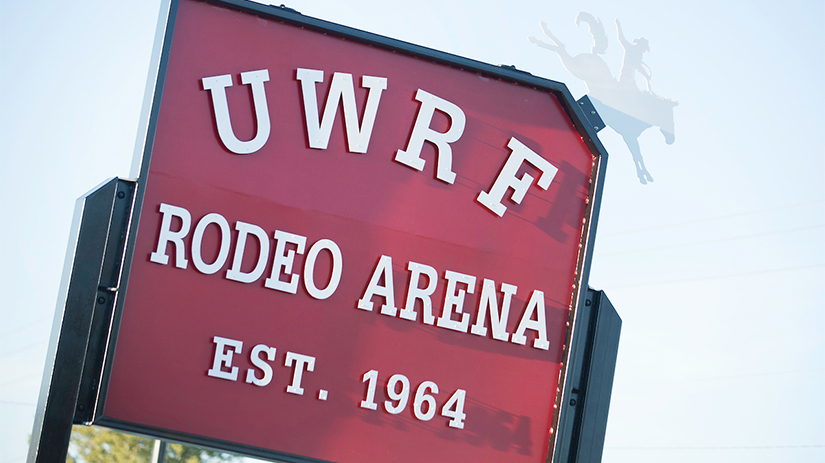UNIVERSITY OF WISCONSIN River Falls
College of Agriculture, Food and Environmental Sciences
Laboratory Farms
Welcome to the Farms!
The College of Agriculture, Food and Environmental Science has provided training in the agricultural sciences since 1912. We have earned an outstanding reputation for quality education and service to the people of Wisconsin. UW-River Falls operates two laboratory farms which are an integral part of our students' education. Many classes in animal sciences, horticulture, crop and soil science, environmental science and agricultural engineering technology meet on the farms for the laboratory portions of the course.
In addition to the production of crops, the laboratory farms support horse, beef and dairy cattle herds, a swine herd and a sheep flock. Demonstrations and experimental plots are also provided for student use. Cropland and livestock production facilities are used for classroom and hands-on educational purposes. Modern facilities house the animals and are used to demonstrate the relationships between management, nutrition, breeding and the environment.
Campus Farm
Located south of River Falls within walking distance of campus, the Campus Farm includes approximately 130 acres primarily devoted to horse operations and includes the following features:
- Outdoor and heated indoor riding arenas
- A mare barn and colt barn, with classroom space
- Breeding facilities
- Pasture and hay land
- Rodeo arena (student-run rodeo each fall)
- 32 acres for horticulture research and extension work
- 8 acres for environmental science and forestry projects on the northwest edge of the farm
Mann Valley Farm
Located 2.5 miles northwest of River Falls at County Road MM and S. Glover Road, Mann Valley Farm spans approximately 475 acres. The farm houses beef, dairy, sheep and swine operations, and facilities include:
- Beef finishing lots
- Swine farrowing
- Hoop and finishing barns
- Sheep barn with heated lambing rooms
- St. Croix Valley Bull Test Station
- Dairy Learning Center
- Indoor classroom
- Indoor pavilion for instruction, contests, workshops and livestock shows/sales
- Case IH provides the farm with the latest in farming technology and equipment
- Feed processing, grain drying and storage units (cropland on the farm produces the majority of feed required for livestock production)
- Interdisciplinary composting research program housed on-site.
Student Farm Jobs
Applications for student workers on the laboratory farms will be accepted on an ongoing basis as positions become available. Visit the UWRF Career Services job site Handshake to apply
Visit the Farms
The UWRF laboratory farms are open to the public. We make every effort to accommodate tours for groups while taking into account the class schedules of our student tour guides.
For tour appointments, email Brooke Giese in the CAFES Dean's Office at brooke.giese@uwrf.edu
Take a tour of the lab farms with this self-guided map, or visit the UWRF Interactive Map.






